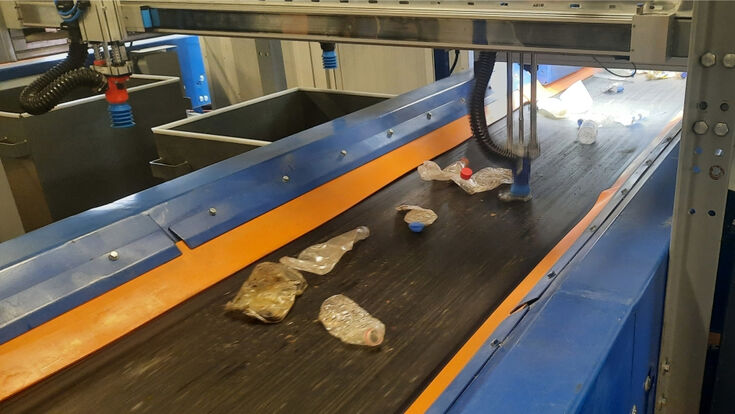Reclaim Waste Melbourne: Advanced Techniques for Effective Liquid Waste Removal
Wiki Article
The Necessary Role of Correct Fluid Waste Removal Strategies in Waste Administration
In the world of waste administration, the value of utilizing appropriate liquid waste elimination methods can not be overemphasized. The complex web of interconnected environmental, wellness, and safety and security considerations depends upon the reliable management of fluid waste. From guarding our ecosystems versus contamination to supporting public wellness criteria, the appropriate disposal of liquid waste plays a crucial duty in preserving a sustainable and healthy environment. This critical duty prolongs beyond simple waste removal, influencing a wide range of fields and elements of our everyday lives. It is within this framework that the implementation of sound fluid waste elimination methods stands as a cornerstone of accountable waste administration practices.Value of Proper Liquid Waste Removal
Why is proper fluid waste removal vital in preserving public and ecological wellness criteria? Correct liquid waste removal is important for securing the atmosphere and promoting public health standards.
Environmental Benefits of Efficient Methods
Carrying out effective liquid waste elimination methods not just safeguards the atmosphere but additionally plays an essential duty in maintaining public health and wellness standards. By using appropriate methods, such as innovative filtering systems and responsible disposal techniques, the environmental advantages are significant. One of the main advantages is the avoidance of contamination of all-natural water resources. Improper disposal of liquid waste can cause pollutants leaking into the dirt and at some point reaching groundwater reservoirs, affecting both human health and wellness and environments.In addition, effective liquid waste removal strategies aid reduce the risk of waterborne conditions. By making sure that hazardous substances are not launched into water bodies, the spread of conditions brought on by infected water can be lessened. Moreover, correct waste management practices contribute to the preservation of marine life. Harmful chemicals in liquid waste can have destructive impacts on aquatic and freshwater organisms, disrupting ecological communities and biodiversity.
Health And Wellness Ramifications of Inadequate Elimination
The detrimental health and wellness implications related to poor liquid waste elimination emphasize the critical value of appropriate disposal methods and effective management techniques. Inappropriate elimination of liquid waste can lead to the contamination of water resources, posing severe health and wellness risks to both human beings and wildlife. When liquid waste consisting of dangerous chemicals, pathogens, or other toxins is not effectively eliminated and treated, it can permeate right into groundwater, rivers, and oceans, endangering the high quality of drinking water and water communities.Direct exposure to contaminated water due to inadequate fluid waste removal can lead to numerous wellness problems, consisting of intestinal ailments, skin infections, respiratory system concerns, and much more serious problems such as body organ damage or neurological conditions. Furthermore, the launch of unattended liquid waste into the setting can add to the spread of waterborne illness, producing public health and wellness dilemmas that need substantial resources to go to these guys resolve.
Consequently, carrying out appropriate fluid waste elimination methods is vital to protecting public health and protecting the honesty of ecosystems. Liquid waste removal. By focusing on efficient waste monitoring techniques, we can minimize the health dangers linked with insufficient liquid waste removal and promote a healthier environment for all
Role in Stopping Water Contamination
Effective fluid waste elimination techniques play an essential role in protecting against water contamination and protecting public health. Improper disposal of fluid waste, such as without treatment sewage or commercial effluents, can lead to the contamination of water resources, posing serious threats to human health and wellness and the atmosphere. When liquid waste is not properly removed and treated, damaging materials can seep right into groundwater, rivers, and seas, infecting alcohol consumption water supplies and water environments.
Infected water can bring a series of contaminants, including microorganisms, hefty steels, and chemicals, that have the prospective to create waterborne conditions, environmental damages, and lasting wellness results in human beings and wild animals. Correct fluid waste elimination techniques, such as wastewater therapy plants, septic systems, and commercial effluent therapy centers, are important for removing or counteracting dangerous contaminants before they can get in water bodies.
Ensuring Safe Disposal Practices
Ensuring proper disposal methods for liquid waste is vital to shield water sources and public health and wellness from contamination threats. Safe disposal methods include adhering to guidelines and standards stated by ecological firms to decrease the impact of liquid waste on the environment. Appropriate control and storage of fluid waste are important to avoid leaks or spills that could seep right into the soil and this article infect groundwater resources. Applying effective treatment methods, such as filtration or chemical procedures, before disposal can additionally considerably reduce the hazardous results of fluid waste on the environment.
Conclusion
Finally, proper liquid waste elimination methods play an important duty in waste administration by stopping environmental contamination and guarding public health. Effective elimination methods make sure the secure disposal of liquid waste, decreasing the adverse effect on communities and water sources. It is vital for markets and people to embrace responsible techniques to reduce the harmful effects of inappropriate liquid waste disposal.In the realm of waste administration, the value of employing proper liquid waste removal techniques can not be overemphasized. It is within this structure that the application of sound fluid waste elimination strategies stands as a foundation of responsible waste administration methods.

Report this wiki page